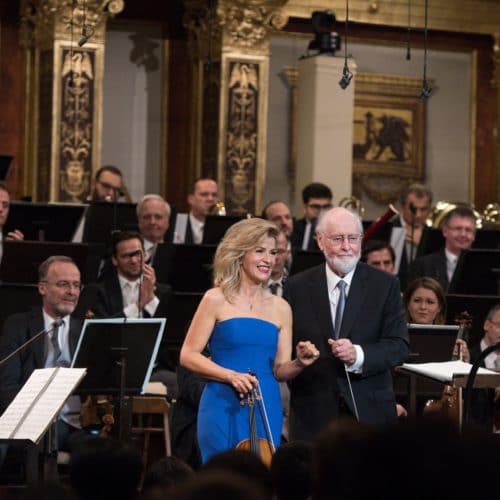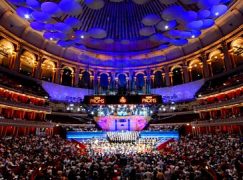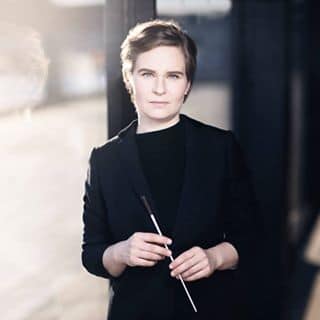John Williams enters his 90th year
mainThe most successul film composer since Erich Wolfgang Korngold turned 89 today.
He has lived one-third as long again as poor Erich and in the last quarter of his life has achieved astonishing classical rewards, entering the repertoire of every US orchestra and conduting the Vienna Philharmonic without losing a scintilla of his humility.
Happy birthday, John Williams.






Fame at last!
Imagine if the great EWK had reached this age!
Korngold was a classical composer. This poseur is not.
With his unparalleled success in composing for film and television – a career spanning 60 years – Williams could easily afford to ignore the snide brickbats, bask in his fame, and amuse himself by casting fistfuls of hundred-dollar bills into his fireplace. Instead, he’s filled his “down time” (which can’t be much) by composing concertos for just about every instrument. Currently he’s at work on a violin concerto for Anne-Sophie Mutter. These concertos may not have the staying power of the film music, but they are finely crafted, and some of them are actually pretty good. He’s no Beethoven or Stravinsky, as he would be the first to admit, but he is a valid composer, which he has proved time and again. Blame the record companies, not Williams, that the concert pieces are not better known. “Star Wars” sells.
He composed this concerto in 1974, and dedicated it to the memory of his first wife, the actress Barbara Ruick.
https://www.youtube.com/watch?v=28SxLy4kUmE
It was not performed until 1981. Who knows if it would have been played at all, had it not been for his film successes? In 1974, he’d already won an Oscar for his work on “Fiddler on the Roof,” but for most people at the time, he was likely just another name in the credits. After “Jaws” and “Star Wars,” that would change in a big way. One shouldn’t blame someone because he happened to achieve success doing what he does exceedingly well.
Williams has brought joy, and an appreciation — or even an awareness — of the orchestra, to millions. So few enjoy that level of good fortune. But maybe that was the point of your remark?
Here’s hoping that people are more charitable about your accomplishments on your 89th birthday.
Whereas you have achieved so much, I presume!??
No point in playing a fanfare for J.W., as he wrote tons of them already. Seriously though, I wish him a Happy Birthday. 89 is a great achievement for anyone.
Try this one!
https://www.youtube.com/watch?v=7g6gyOsxoMY
More than the most successful film composer since Korngold, John Williams is the most successful film composer of all time. No one else comes close.
Wagner’s operatic music could be considered “film music”, but in his day there were no movie theaters, computerized sounds, visual animations nor light effects, so I guess he doesn’t count. In addition, he wrote his own stories (libretti), and blueprints to all of his dragons and decors.
When one thinks about it, he was a one-man band, and I’m sure that John Williams wouldn’t argue with that he practically does “come close”.
It’s difficult to argue with NL’s points here.
The interesting foil in the “humility” department is Leonard Bernstein, of course …
Long live success.
This calls for a statue, someone must step up on behalf of this humble man. Let it be 10 meters tall and constructed of pure tinsel. Since his music is now “everywhere,” perhaps these should be everywhere too . . .
Let there be “inclusion officers” as well, also everywhere, but this time directed toward including the audience in this curious game.
What, the officer might ask, is the pull of this bad music? What do the ticket buyers see it?
Answer: images of the movies these pastiches were abstracted from.
What does this show? The hunger of these ticket-holders, many of them experienced in better music, for something, anything in and of our own time.
For my part, the spread of the symphonic Williams is a capitulation, a much more depressing development than the appearance of Katy Perry at even a hundred fundraising events.
Tell me I’m wrong.
Perhaps you’ve never sat in an orchestra and played his music. It’s a joy to perform and audiences love it. Orchestras need to play things people enjoy in order to survive, every now and again.
I agree for the need of music that audiences enjoy, I couldn’t agree more. I argue for that all the time.
My belief is that if anything is going to save the classical music tradition and hall, it will be music written to stand on its own, and not background in movies, written very often to provoke feeling that script or acting fails to convey.
Movie sound-tracking is a legal and reputable occupation. It’s good that the symphonic sound reaches those large audiences. But it can’t fill the current void and this adulation of Williams just worries me, it feels to me like part of the general downhill slide — which also includes “new music” that audiences hate.
In addition to this angle of mine, there are movie practitioners much worthier of attention than he.
PS: If I had the skill to sit in an orchestra and play any instrument there, it would be some kind of a thrill! (A horn might be too much pressure.)
You’re wrong. Film music is a serious genre, founded by classical composers and well over a century old now. Williams is a proven master in that genre (although he also works in others). Audiences recognise and enjoy quality and his music – written in the classical tradition, and as effective in the concert hall as comparable theatrical music by Mendelssohn, Beethoven, Sibelius and Stravinsky – has rightfully become a repertoire staple for major orchestras.
Put it this way…many people have been exposed to a large symphonic orchestra by way of the movies. Composers who have dedicated their talents to this form should never be sneered at.
45 years ago, Bernard Herrmann was ignored by the classical community in spite of his credentials as a conductor (introducing Charles Ives to the world, presenting a number of British composers to American audiences as well as unearthing unknown or forgotten composers of the Romantic era), and all because he scored movies for the likes of Welles, Hitchcock, Truffaut, DePalma and Scorsese. Today he is considered one of the most innovative voices to have graced the cinema, and his music has influenced many composers from Philip Glass and John Adams to Danny Elfman and Stephen Sondheim…
. . . and, John Williams.
Yet Herrmann’s concert works, ranging from his only symphony to his cantata Moby Dick to his opera Wuthering Heights rarely get played and recorded. If he were alive today and read commentary such as yours, he would explode, for he did not take such thoughts lightly. There are film composers and there are composers who just happen to write for the cinema. There is a difference. Williams happens to be one of the latter.
@ Mr. Scott: If I read your tone rightly you are offended by my posts, at least or especially the first. Since I would rather not be at war with strangers over possible mis-perceptions, I’ll attempt to explain further.
It may be that Williams’ music is better than it sounds, I don’t pretend to be an expert on that point. I just don’t like it. This is a matter of taste.
It is good thing that, through the movies, the sound of the symphony orchestra reaches the broad masses.
The aesthetics of movie composing constitutes a thing of and to itself. Too often this has proved a kind of crust on the soundtrack, a sledge-hammer of manipulation; times change and tastes with them but we are left with deep mush laid over dialogue, the second of which changes less.
There are occasions when off-screen music has made an immeasurable contribution to masterpieces. A number of great directors ban it entirely. The history of its use is something quite arcane, and I don’t require a lecture from you on this.
My point is hardly to disparage the practitioners en masse, if that’s what you think.
What I don’t like is shoe-horning scores from unrelated uses into the classical rep, and Williams’ especially.
Congratulations indeed . Worked with John both in St. Louis and Minnesota . He is a talent and, as Norman has mentioned, a very humble man. His music has given joy to many people .
I like John Williams’s music, both his film scores and his concert pieces (and the pieces that seem to straddle both). But what is the criteria for calling him “most successful since Korngold”? Income/record sales? That he is accepted (as he is) as a classical composer and conductor?
I ask this not to be disputative but to put in a mention of Henry Mancini and Bernard Hermann as exceptionally successful film score composers, and both fine musicians.
Thanks for the comment, David. While the classical world tends to reach for the name Erich Korngold as a historical bookend to John Williams, the film music of Korngold is really from an older style of over-obvious accompaniment of screen action and telling the audience exactly what to think. Bernard Herrmann’s music is more subtly illustrative and ingratiating and is found in a range of films that new generations of movie-goers (well, movie-watchers at the moment) continue to discover, from Orson Welles’ Citizen Kane to Martin Scorsese’s Taxi Driver and several of the most iconic Hitchcock films in between. During the pandemic, Joe Horowitz’s PostClassical Ensemble has put out a new program on Bernard Herrmann in their “More Than Music” series along with an accompanying Naxos CD. Concert presenters of all types would do well to check it out, including for such discoveries as Herrmann’s fabulous Clarinet Quintet. There are a lot of relevant program ideas to chew on here that actually have a hope of converting attendees of “popular” orchestral programs to mainstream classical concerts and valid blends of both. I hope this helps.
Well said, David. I would also note that Herrmann’s “Echoes” quartet should be a standard repertoire piece.
Happy 89th Birthday, Maestro Williams! What a legendary man you are.
Does that mean I am allowed to buy his new cd now?
Yes, but I suggest you get the 2021 re-released “Live Edition” which contains all pieces from his legendary 2020 pre-Corona concerts in Vienna.
“JOHN WILLIAMS ENTERS HIS 90TH YEAR”
Oh joy, oh rapture unforseen….
When conducting the Great Vienna Philharmonic the audience gave Williams many standing ovations .BRAVO !!!!
Where do Jerry Goldsmith and Ennio Morricone stand?